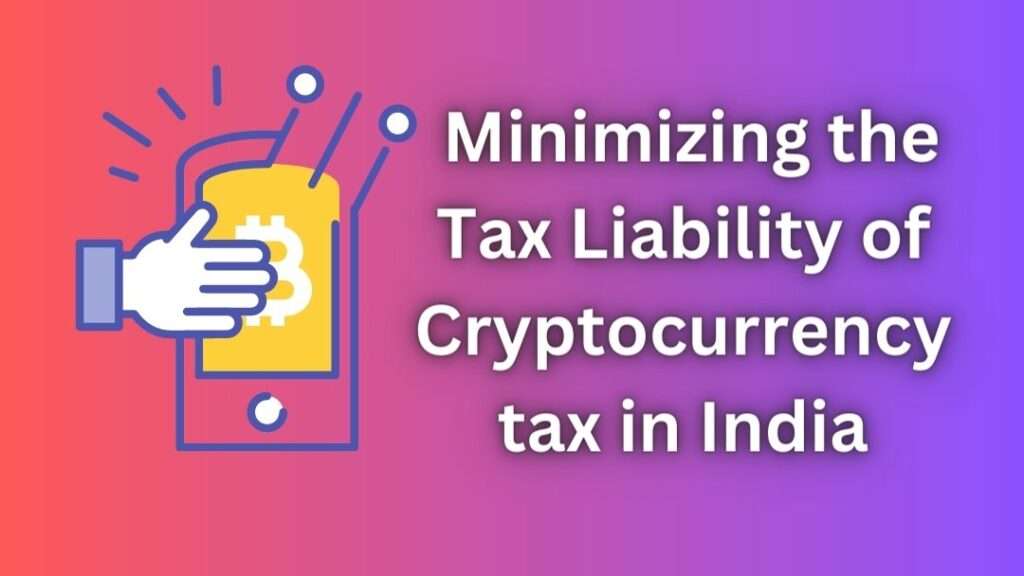Cryptocurrencies have become a game-changer in the financial world, and nowadays they have become so popular that they are drawing in countless investors from India and around the globe. As the popularity of digital assets continues to rise, the Indian government has responded with measures to regulate cryptocurrency transactions, and taxation is a key aspect of it
In this extensive guide, we will take a closer look at cryptocurrency tax in India. Our goal is to provide correct, valuable, and relevant information through this article that can equip you with a clear understanding of cryptocurrency tax in India. After going through this article, you will easily understand how taxes come into play when you buy, sell, or hold digital assets. Let’s dive right in to explore this complex topic together. From short-term gains to tax-loss harvesting strategies, we’ve got you covered. Let’s embark on this enlightening journey into the realm of crypto tax in India!

Cryptocurrencies: The cryptocurrency tax in India for Selling Cryptocurrencies
When it comes to selling cryptocurrencies, investors must navigate the labyrinth of capital gains tax in India. The tax implications are contingent on the duration of holding the digital assets.
Short-Term Capital Gains Tax
If you decide to sell your cryptocurrencies within 36 months of purchase, any gains accrued are considered short-term capital gains. These gains are treated as part of your regular income and are taxed according to your income tax slab. Suppose that if you fall under the 20% income tax bracket and make a profit of INR 1,00,000 on selling your crypto, then you would have to pay INR 20,000 as short-term capital gains tax.
Long-Term Capital Gains Tax
Holding on to your digital assets for more than 36 months grants you the privilege of long-term capital gains. Taxation on long-term gains is levied at a fixed rate of 20%, regardless of your income bracket. For better understanding let us Consider a situation in which you decide to sell your cryptocurrency after holding it for an admirable duration of 3 years and make a sizeable profit of INR 5,00,000.
In this situation, you will be responsible for paying a set 20% long-term capital gains tax on gains totaling INR 1,00,000.
Cryptocurrency Taxation in India on Receiving Cryptocurrencies as Gifts or Airdrops
The allure of receiving cryptocurrencies as gifts or through airdrops can be irresistible. However, these tokens come with tax implications.

Income Tax on Gifted Cryptocurrencies
If you receive cryptocurrencies as gifts then you must consider cryptocurrency taxes in India and should accept their value as income, and keep in mind that taxation is applicable if the value exceeds INR 50,000. Let’s say you receive crypto assets worth INR 60,000 as a gift; the additional INR 10,000 would be considered income and taxed accordingly.
Airdrops and their Tax Implications
Airdrops, often regarded as free distributions of tokens, are categorized as gifts under Indian tax regulations. The value of the airdropped tokens becomes taxable income if it exceeds INR 50,000. Ensure that you keep track of the market value of the airdropped tokens and report them accurately while filing your taxes.
Cryptocurrency tax in India for Non-Resident Indians (NRIs)
Cryptocurrency investments in India are not limited to residents; NRIs also actively participate in this exciting financial space. However, NRIs need to be aware of specific tax implications.

Capital Gains Tax for NRIs
For NRIs who are investing in cryptocurrencies in India, the capital gains tax applies similarly to resident Indians. Whether the gains are short-term or long-term, they are subject to taxation at the specified rates. It is vital that NRIs comply with the Indian tax regulations to avoid any legal ramifications of cryptocurrency tax in India
Tax Reporting and Compliance with Cryptocurrency Tax in India
To maintain a seamless and hassle-free crypto journey, it is essential to stay compliant with tax regulations. Here are some key aspects to focus on:
Accurate Record Keeping
Maintaining detailed and accurate records of all your cryptocurrency transactions is crucial. From the date of purchase to the amount and holding period, keeping track of every transaction will help you during tax reporting and audits.
Form 26AS
Form 26AS is a consolidated statement that reflects all tax-related information associated with your PAN card. Ensure that your cryptocurrency gains and losses are correctly reflected in this form.
Tax-Filing Deadline
Adhere to the prescribed tax-filing deadlines set by the Income Tax Department of India. Failing to file taxes on time can lead to penalties and legal consequences.
Strategies to Minimize Tax Liability for Cryptocurrency Tax in India

Even while taxes are an inevitable part of financial transactions, you can still reduce your tax exposure in the realm of cryptocurrencies by using legal tactics. By employing these legal methods, you can effectively manage your tax burden and make the most of your crypto investments.
Tax-Loss Harvesting
Tax-loss harvesting involves selling lost investments to offset gains from profitable ones, thereby reducing your overall tax burden. This strategy is effective for managing your tax liability in a volatile crypto market.
Seeking Professional Advice For Cryptocurrency Tax in India
Navigating the complexities of cryptocurrency taxation can be daunting. Seeking guidance from a qualified tax consultant or financial expert is highly recommended.
Expert Advice for NRIs
For NRIs investing in cryptocurrencies in India, seeking expert advice from professionals well-versed in both Indian tax laws and international taxation is crucial. They can provide personalized guidance to ensure compliance with the latest regulations on cryptocurrency taxes in India
Conclusion
Congratulations! You’ve successfully journeyed through cryptocurrency tax in India and armed with knowledge and expert advice, you can now confidently navigate the crypto landscape while complying with tax regulations.
Always remember, accurate record-keeping, tax planning, and timely tax filing are the pillars of a tax-savvy investor. As you venture forth into the world of cryptocurrencies, make informed decisions, and may your digital investments be rewarding and tax-efficient.
Disclaimer:
The information provided in this article is only for educational purposes and this article should not be considered as financial or tax advice. Please consult a qualified professional for personalized guidance on your specific tax situation.
Read More
What is a smart contract? Unlocking the Potential of smart contracts : A Beginner’s Guide
Discover Elon Musk Cryptocurrency : Musk’s Involvement with Cryptocurrencies-A Driving Force
The Ultimate Beginner’s guide to Bitcoin mining : Maximise Your Earnings and Minimise Your Risks






























